LOUDER THAN BOMBS (2015)
The fractious family of a father and his two sons confront their different feelings and memories of their deceased wife and mother, a famed war photographer.
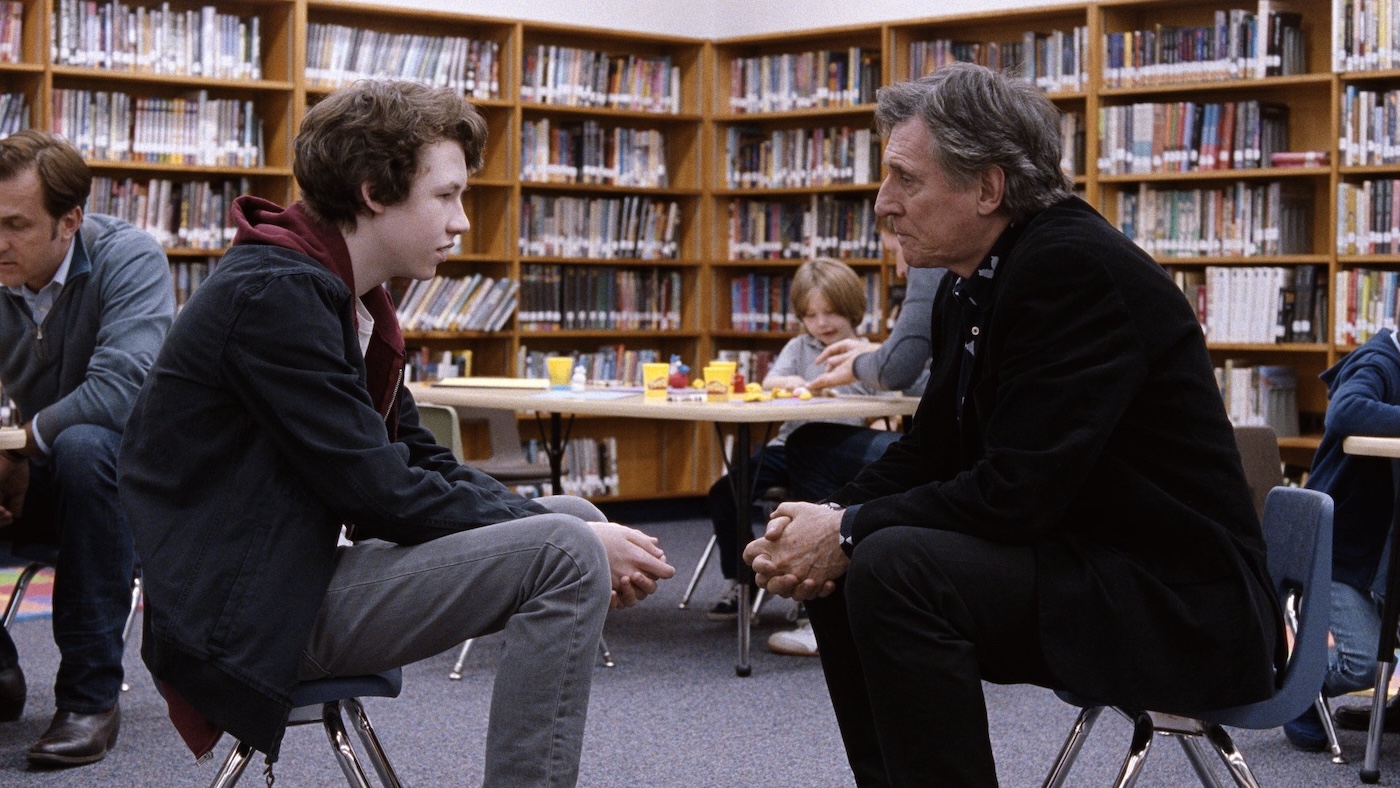
The fractious family of a father and his two sons confront their different feelings and memories of their deceased wife and mother, a famed war photographer.


Grief is an ongoing process in Joachim Trier’s Louder than Bombs, which is to say that the past is in constant communication with the present. Just when it seems that the narrative of a fractured family of three males—deeply angry teen Conrad (Devin Druid), conflicted young college professor and father Jonah (Eisenberg), and their struggling dad Gene (Gabriel Byrne)—has been established, it would appear that deceased matriarch Isabelle (Isabelle Huppert) will be the unspoken absence in this film’s emotional centre. Instead, the film doesn’t just feature plenty of conversations about Isabelle and who she was, it weaves through this family’s chronology to explore the indelible impact her career as a war photographer left on her, and the complicated portrait of conflict that preceded the car accident which killed her.
We soon learn that this wasn’t an accident at all, but a deliberate decision born of years of anguish. The central question of what could have compelled someone to end their life takes a backseat in favour of how the three people who loved her most can live with her passing. Each of them suffers the weight of her loss in different ways, but are united by how navigating the cause of her death and learning to live with it are ultimately unknowable. Trier, who directed the film and co-wrote it with Eskil Vogt, grants us a window into Isabelle’s life, but only insofar as her three loved ones were aware of it. It’s true that a hole’s been cleaved out of the trio’s lives that can never be repaired, but perhaps the biggest absence on display here is the void that exists between the respective prisons of these family members’ internal lives.
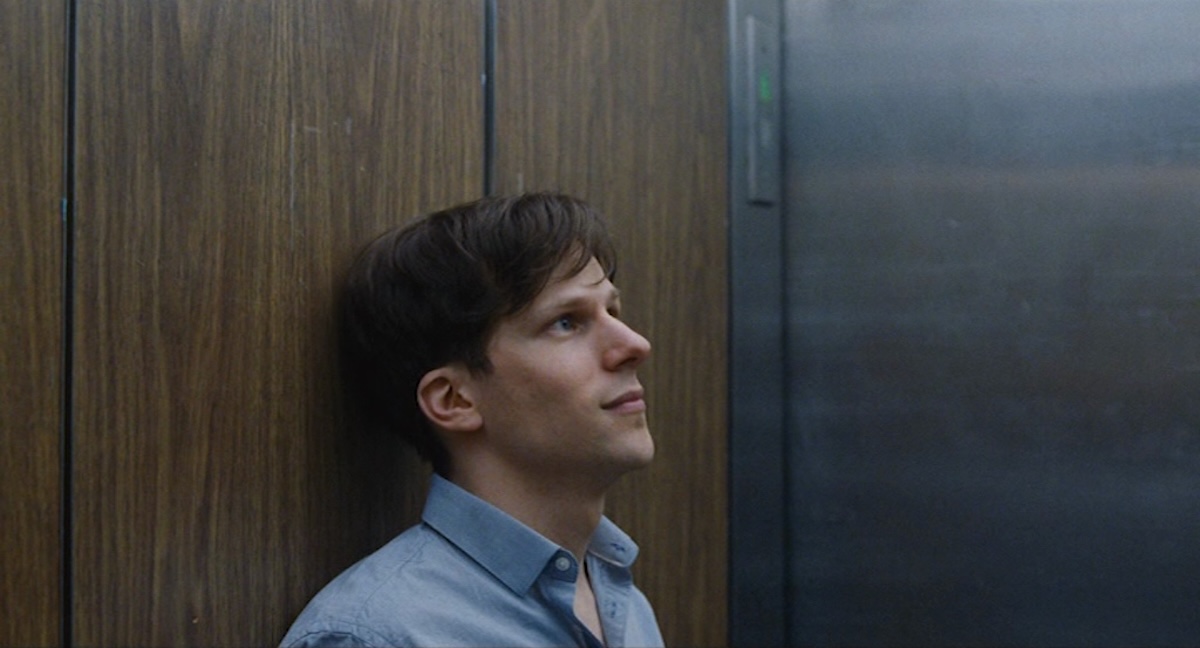
In theory, grief should be a tremendous source of unity, binding family and friends closer than ever before in a shared recognition that one should never suffer alone, and that all our time on this Earth is desperately short. If only it were so. Conrad is full of rage, headphones perpetually clamped over his ears throughout the school day, only to return home and sink into the familiar milieu of video games and YouTube videos. Observing his brother appraising the realism and satisfaction of violence in a Call of Duty game, or how his YouTube playlist includes videos depicting the sped-up decomposition process of dead animals, Jonah asks half-jokingly if the teen is a future school shooter, a worrying consideration that will echo viewers’ assessments of this repressed teen.
Jonah, meanwhile, has his own demons, ignoring his job, wife, and newborn baby to spend more time with his father and brother. A break from his routine soon transforms into an escape hatch to insulate him from the life he had done so well to build for himself. Gene struggles to find his place as the sole parent of his grieving sons, especially given his and Conrad’s near-constant state of conflict. Knowing that talking to his teenage son does no good, he instead silently follows him, whether that involves stalking Conrad after school or learning the intricacies of one of his teenage son’s favourite online games, creating a character in that fictional world and attempting to interact with him as a total stranger.
None of this does any good, since these characters don’t want to be saved. They would be completely and totally lost without one another, as exemplified by Jonah’s desperation to be free from his responsibilities. What he’d be reticent to admit to is that he’s seeking out the comforting and protective cocoon of family and his childhood home, where he doesn’t have to appear as the patriarchal leader anymore. He’s eager to criticise his own father, an understandable, if rankling, source of hypocrisy.
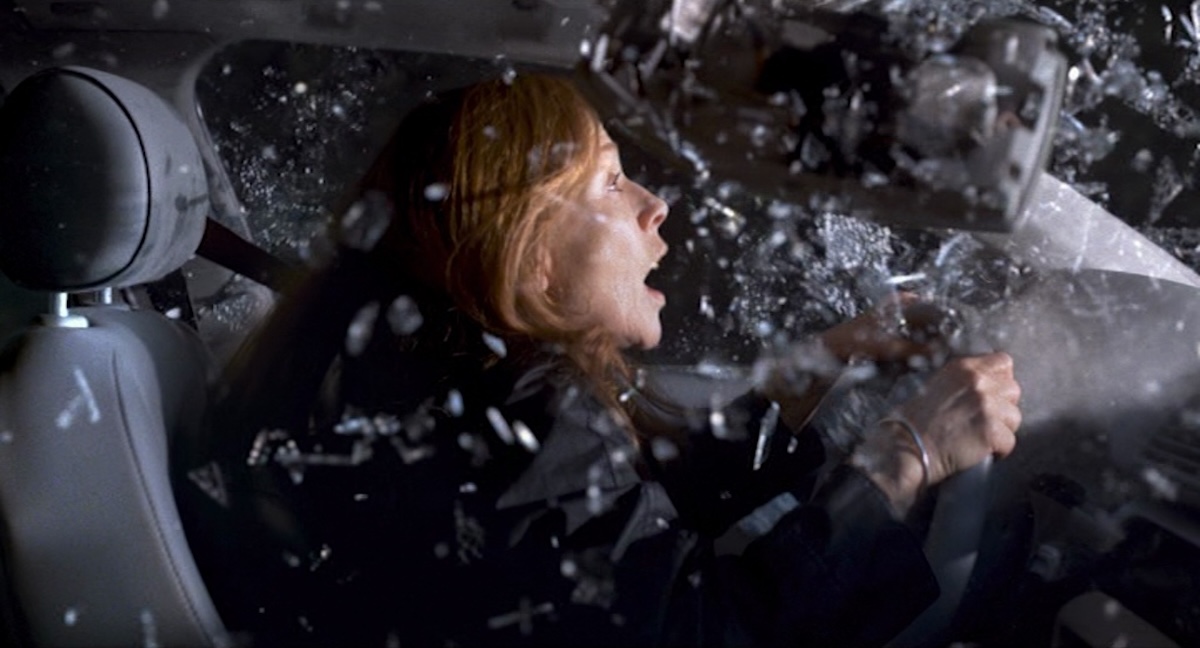
In this respect, the film bites off more than it can chew, where unintended holes in the narrative sprout alongside its intended ones. Jonah is hardly present in Louder than Bombs, especially when weighed against Conrad’s woes and anguish, which appear ever-present. The contrast between how Jonah and Conrad understood their mother, her emotions, and her marriage are often mentioned but rarely felt. Jonah was busy studying at college in the final years of his mother’s life, while Conrad was just a pre-teen by the time of her death, entrenched in this three-person family unit but still kept on the periphery of the conflicts that occurred within it.
Louder than Bombs is one of those rare films that, when watching it, has one feeling certain that it has been adapted from a novel. Not just any novel, too, but one that seeks to explore the human condition fully by reminding us that we are all part of a grander story. If Jonah’s section of the story were conveyed through prose, it’s possible that his reflections would be the most intriguing of all. How is it that a young man can start a new family when the one that ushered him into this world and nurtured his growth is wrought with anguish? How can he sit by and let the people who rely on him despair? To what extent is he willing to admit that he’s driven in this pursuit by fear for himself and not empathy for his loved ones? The questions merit reflection, but given that so little of this can be conveyed through visuals, or even a compelling conversation—since this is an internal struggle that these characters are too self-protective to articulate—Jonah is easily the least interesting character in Louder than Bombs.
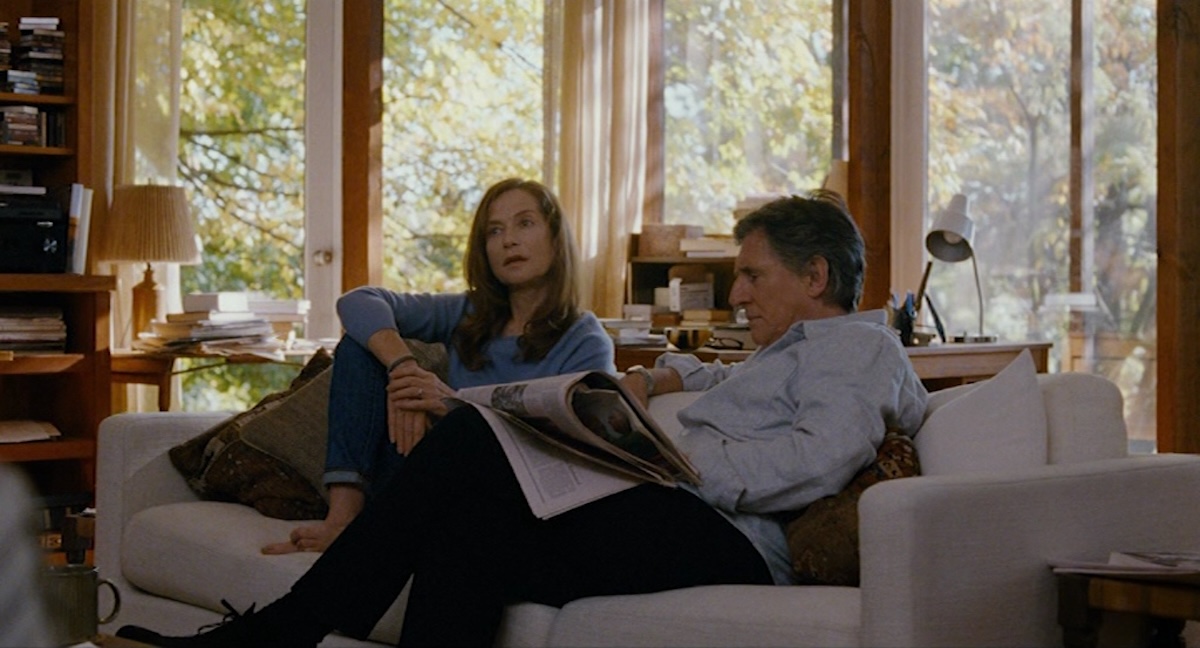
I find it fascinating that Louder than Bombs feels so literary, given that its finest moments contain notes of sensitivity which wouldn’t be nearly as acutely felt in prose. The brief opening sequence where Jonah holds his newborn child in the hospital is as gorgeous as anything Malick could portray with this same set of images. Gene’s recollection of his attempts to connect with Conrad virtually—interspliced with footage from said video game—is a beautiful and bittersweet moment that sets up a sadly humorous punchline when Conrad decides to brutally execute Gene’s character, killing him with one swift blow using a comically over-sized sword.
Scenes like these are sensitive yet evocative echoes of the human spirit, glimmers of emotional truth awash in a sea of failed attempts at connection. Gene is concerned about both of his sons, Jonah is concerned about Conrad, and Conrad is too young and self-absorbed to think of anyone’s despair but his own. Yet each of these characters are similar in that they’re all unwilling to fully explore who they are and go on a journey of self-discovery. Watching that barrier slowly come undone is more fulfilling than any moment of connection between the trio could ever be. For that, Louder than Bombs is a success, a fractured puzzle that doesn’t use this format to explore a central mystery, but to comment on the ways in which absences of connection bear a brutal presence in our hearts. The film isn’t always gripping, but its moving scenes are yet another testament to Trier’s ability to acutely portray the human condition on screen and make it look effortless.
NORWAY • FRANCE • DENMARK • USA | 2015 | 109 MINUTES | 1.85:1 | COLOUR | ENGLISH

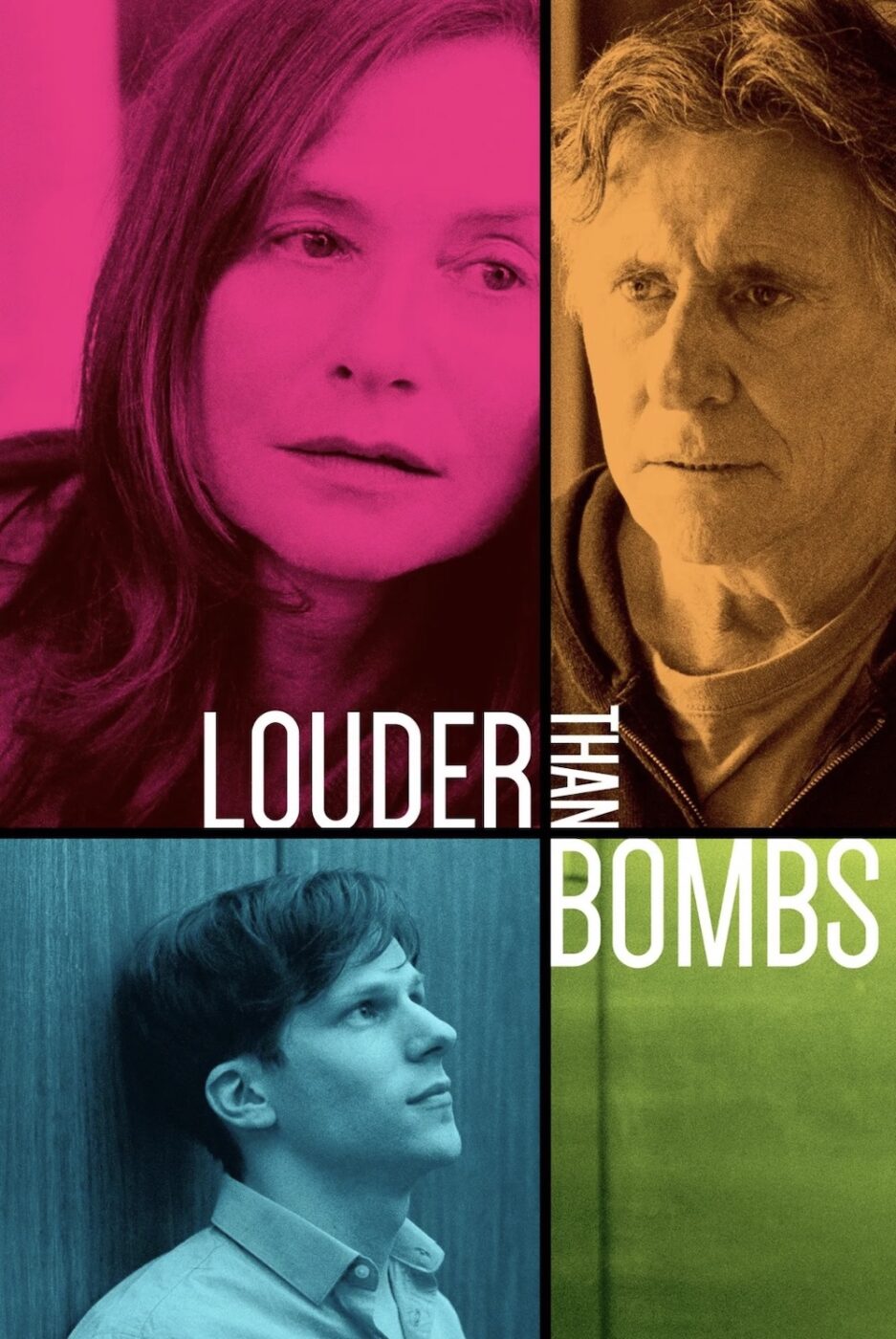
director: Joachim Trier.
writers: Eskil Vogt & Joachim Trier.
starring: Gabriel Byrne, Devin Druid, Jesse Eisenberg, Isabelle Huppert, Amy Ryan, David Strathairn, Rachel Brosnahan & Ruby Jerins.
